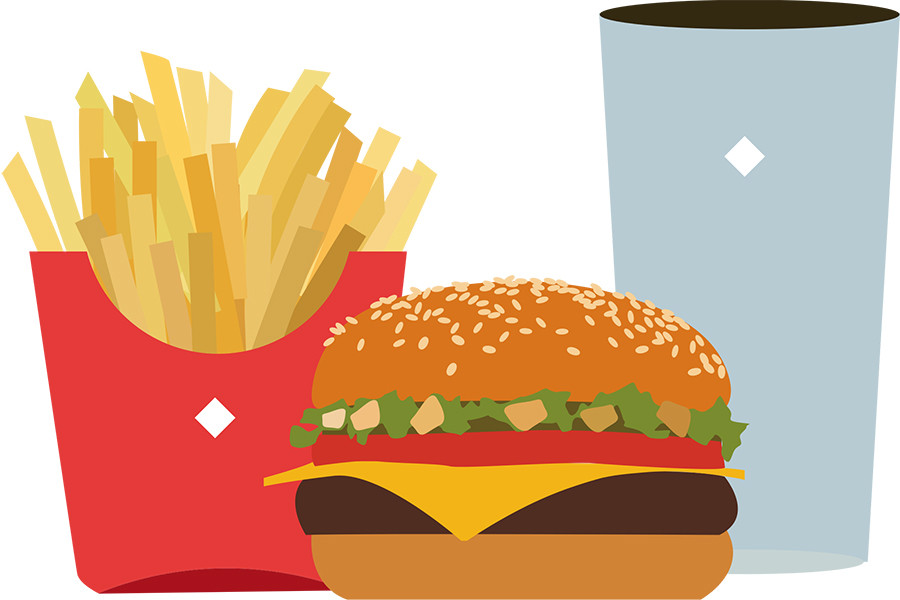Study shows proposed bill could make childrens’ fast food options healthier
Langone proposed a bill to increase the healthiness of fast foods.
September 8, 2015
Researchers at the NYU Langone Medical Center found that a proposed bill to improve the the nutritional value of children’s fast food meals could have a positive impact.
Introduced by city councilman Benjamin J. Kallos, the “Healthy Happy Meals” bill would require that meals marketed to children within New York City include a serving of vegetables, whole grains or fruits, and be limited to 500 calories, with restrictions on where those calories could come from: fewer than 35 percent of calories from fat, fewer than 10 percent from saturated fat and fewer than 10 percent from sodium. In addition, the meals would have to have fewer than 600 milligrams of sodium.
The Langone study was published on Aug. 31 by Brian Elbel and Marie Bragg, who work in the Department of Population Health within NYU Langone, NYU Wagner and the College of Global Public Health.
In the study, Bragg and Elbel examined receipts from McDonald’s, Wendy’s and Burger King in New York City and New Jersey. They found that adults purchased an average of 600 calories per child, and 36 percent of calories came from fat — 98 percent of the meals did not meet the bill’s requirements.
Ideally, the bill would result in fewer calories in the childrens’ meals, Elbel told the online publication Medical Xpress.
“While 54 fewer calories at a given meal is a small reduction, small changes that affect a wide number of people can make a large impact,” Elbel said. “Passing the bill could be a step in the right direction, though no single policy can singlehandedly eliminate childhood obesity.”
Kallos said he felt the bill would be positive for both sides of the fast food business.
“‘Healthy Happy Meals’ would be a win for restaurants, parents and children, with children eating healthier food and restaurants generating more revenue,” Kallos said in an email.
Detractors fear that healthier meals might be more expensive and parents might elect to purchase adult options that are not subject to legislation. However, Kallos said he does not think this will happen.
“Happy Meals already offer healthy options that can be specially requested, this legislation would simply make Healthy Happy Meals the standard, which should not increase costs since the option already exists,” the email read.
Steinhardt junior Erica Bodhan, who studies nutrition, is worried about other factors that might prevent the bill from being effective.
“Unfortunately, I don’t think it’s going to make much of a difference,” Bodhan said. “It’s not proposing drastic enough changes. They’re proposing 500 calories, no more than that per meal, and that’s still, for a child, that’s quite a lot. While I think it’s a step in the right direction, I really don’t think it’s going to change much.”
Email Justine Morris at [email protected].

























































































































































